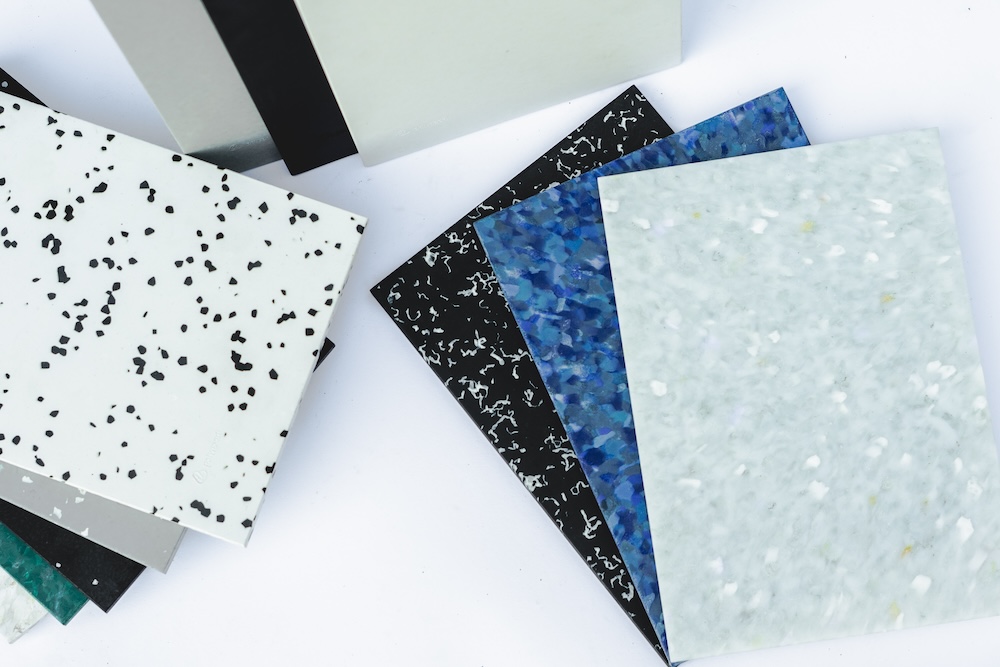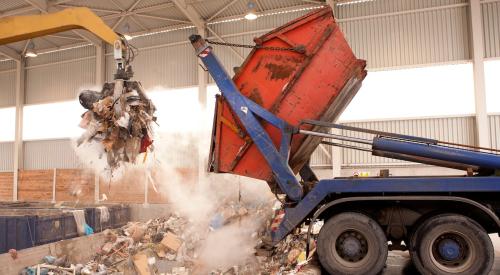The Good Plastic Company, a global leader in sustainable surface materials, has expanded its operations into North America, bringing its innovative Polygood material to the region. Founded by Dr. William Chizhovsky in 2018 to address plastic waste, the company focuses on promoting sustainability and the circular economy. Polygood is a collection of 100% recycled and recyclable plastic panels made from post-consumer and post-industrial waste.
"By investing heavily in research and development, and orienting ourselves as an impact-driven company in every aspect of our business, we were able to pioneer a material that serves as a catalyst for the circular economy," Dr. Chizhovsky says. “As we continue to grow, we are excited to offer businesses, specifiers, and consumers in North America access to a truly sustainable and aesthetically pleasing surfacing solution that aligns with their commitment to environmental responsibility."
Each pattern of Polygood panels—which can be ordered from stock designs or made custom—is derived from distinct waste sources, contributing to its unique character. From refrigerators to single-use cutlery, a wide range of post-consumer and post-industrial plastic waste streams are utilized in Polygood production. This has helped the product achieve Cradle to Cradle Bronze certification as well as a verified Environmental Product Declaration.
Polygood is suitable for various design applications, including interior design, architecture, and furniture manufacturing. The company's industrial-scale manufacturing process ensures an annual production capacity of approximately 530,000 square feet, with the ability to meet growing demand for sustainable materials.
The expansion of The Good Plastic Company into North America marks a significant step towards promoting a circular economy. Polygood offers a practical solution to reduce plastic waste while meeting the needs of businesses and consumers committed to environmental stewardship. As the company continues to grow, it aims to inspire positive change in how plastic waste is managed and perceived.











